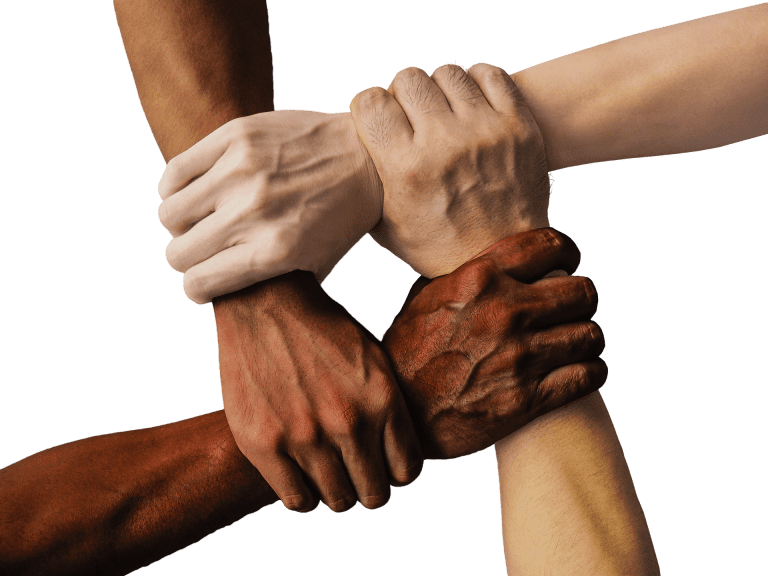(Erin is on vacation this week. Today’s guest post is by teacher and writer Quinn White.)
By Quinn White
I didn’t think I was fragile anymore. I talk about racism a lot. I write about it. I study it all the time. But I found myself angry, frustrated and beyond defensive recently. I found myself resisting, with white knuckles around my identity as an anti-racist activist.
It was an Instagram challenge. “Harmless enough,” I thought.

It was called “You and White Supremacy,” hosted by writer Layla Saad for the last 28 days. “It’s summer,” I thought. “I can take 30 minutes each day and do this. This will be good.”
It turned out to be the equivalent of the scorching hot days only tolerable if in water. It burned me raw. It took over my life. It reminded me of Purgatory.
White Supremacy—Layla’s phrase of choice—is not the way that I normally describe the internalized bias from which I function. I usually say something like “dormant racism,” “prejudice,” or “implicit bias,” and when I am really brave, I call it plain old “racism.” The common understanding is that the label white supremacy is just for those who enthusiastically accept it. It has been set aside for White Nationalists, the Klu Klux Klan, alt right protestors. But actually, I think it is a more appropriate way to describe the racist attitudes that have been cultivated within us and an apt way to conceptualize the dynamics between white people and people of color.
White supremacy is the belief that whiteness is superior. It is the belief that our culture, our language/dialect, and our systems are superior. In fact, it is the belief that birthed the construct of race to begin with. It is the virus that infects us without diagnosis or even acknowledgement. It is what this country was founded on and has never been redeemed from. It feeds racism.
It has taken some time, but exposure to and explanation around the phrase has broken down some of my defenses and helped me to see this clearly.
But let’s linger in that phase of defensiveness. Remember that willing white woman who heard about the challenge last month? She watched the required videos, featuring a poised, confident black woman with clear boundaries.
Layla said:
“I will not be doing emotional labor for you.”
“I will not be helping you to process and unpack your emotions.”
“I will not congratulate you.”

I felt respect and intimidation. I was firmly in the role of student, and felt a tinge of the same indignation most students feel when told what to do.
I was asked to reflect on white privilege, and I breathed a sigh of relief. I thought, “Okay. This is familiar territory,” and I wrote:
DAY ONE:
“Like many have said—a novel could be written. The one that has made itself very clear to me tonight is that no one has ever questioned my intelligence or my capabilities based on my dialect or speech patterns. I have not had to code switch. The way my family communicates is acceptable and always has been acceptable outside of my home. I have stood by while people comment on or mock the way others speak and use it as a way to denigrate or dismiss them. I can’t imagine this has even been done to me.”
Thousands of other (mostly) women responded with the ways they have benefitted from being white. Seeing it all at once, in one space, was overwhelming. It was like hearing all of the ways that I am not actually worthy of my own accomplishments. It was like giving into my own insecurities. I swallowed the defensiveness that I knew was unwarranted and moved on.
Day Two was “You and White Fragility.” I read the description: “White fragility is a phrase coined by author Dr. Robin DiAngelo, and is defined as ‘a state in which even a minimum amount of racial stress becomes intolerable, triggering a range of defensive moves.’
Then I read the comments. There were some women who were honest and vulnerable, and others who were copping out—sidestepping the question, grandstanding, or intellectualizing instead of investigating. And maybe I wouldn’t have recognized these behaviors for what they were except that there was another chorus behind them.
It was jarring to me: voices of black women with critiques. They asked the women to dig deeper, to answer the questions, to stop avoiding their work. The comments registered in my body as insults, but they were far from inflammatory. In fact, they were helpful. These women were doing work they didn’t need to do. They were immersing themselves in a space that was harmful to them personally to help us do our work.
Imagine, Layla said, if you stumbled upon a community of men admitting all the ways that they have privilege in this world. It wouldn’t be revelatory, but it would be hurtful to read. She thanked the black women profusely and told them to take care of themselves in this environment. She posted a video about how the truths we are uncovering are not revelatory to her or other BIPOC. They are just confirmation of what BIPOC have to know every day to function and survive in this world. The women on the comment threads knew we weren’t going deep enough because they know us better than ourselves.
Cue my white fragility.
DAY TWO:
“My fragility has manifested itself in the waves of indignation that I feel as I hear WOC talk about things they know about us WW that we don’t even know. I have this urge to halt my work because, from the sounds of it, there is no way that I can change. Apparently, we’ve lost part of our humanity and there is no regaining it. I feel angry and unappreciated because the work I have started is not seen as praise-worthy. In certain White communities, there is a lot of praise to be had when you bring up race and facilitate conversations around it. And there is the opposite, of course, but it is just confirmation of the need for these conversations. I have become conditioned to the praise, to the pedestal, to the righteousness. I thought my fragility was gone because I am not afraid to talk about race and admit my own racism. It turns out, I’m okay with talking about my own racism when White people are nodding their heads or using me as a model. I am realizing how immature my reactions are—my need for affirmation and appreciation is extremely apparent, the ego that resides in my identity as a white anti-racist activist is magnified. And I still I fear being called out; I still fear saying the wrong thing; I still fear not being betrayed by the racism that lies dormant inside me.”
One wise woman in the group commented on how this need for approval and praise that is inherent in white culture has been infantilizing. This resonated. It made me uncross my arms and relax my scowl. It turns out, I am a fragile baby.
I wouldn’t have admitted it before the Instagram challenge, but I expected a sort of Kumbaya culture. I expected them to say thank you. I expected the hard work I was doing to be appreciated, given a gold star, be the impetus for some sort of reciprocal learning.
But here is the thing: the fact that Layla was clear that she is not giving anyone any “cookies” for doing the work that we are responsible for made my intentions and my true feelings so much clearer. Because if the bare minimum had received a like, that is all I would have given. I would have gone just deep enough to receive that approval. So, I would not have discovered the shrouded ugliness inside me during days 9-12. I wouldn’t have been stripped raw on day 16. And I would not have made significant commitments on day 28.
Fragility upholds white supremacy by rendering us nearly incapable of seeing the racism that has been fostered inside of us. It says, “You’re a good person, so racism cannot exist in you.” It says, “Just be angry at the ‘real’ racists and carry on.”
Fragility is immaturity, and we must shatter it. We must face the music and grow up. Because the impact of our avoidance is violence. It is Antwon Rose and Nia Wilson. It is the structures that restrict, oppress, and bring violence upon people of color daily. And we cannot so easily remove ourselves from these realities. Their premise is white supremacy, just like our fragility.
Because this experience was so influential, I could not imagine fitting a comprehensive reflection in one blog post. This will be the first in a series focused on the You and White Supremacy challenge. Stay tuned.
+++
*White Fragility is a term coined by Robin Di’Angelo. She has a book with the same title.
**Layla Saad has disabled her challenge after the 28 days, but will be offering it again through a workbook and online guidance.
+++
Quinn White is a writer and a teacher. She strives daily to become a purer representation of her explicit belief that all people deserve equity and justice. She blogs at whiteimplications.com about issues of racism—namely her own—hoping to encourage the deep conversations necessary for white people to evolve and become anti-racist co-conspirators.












